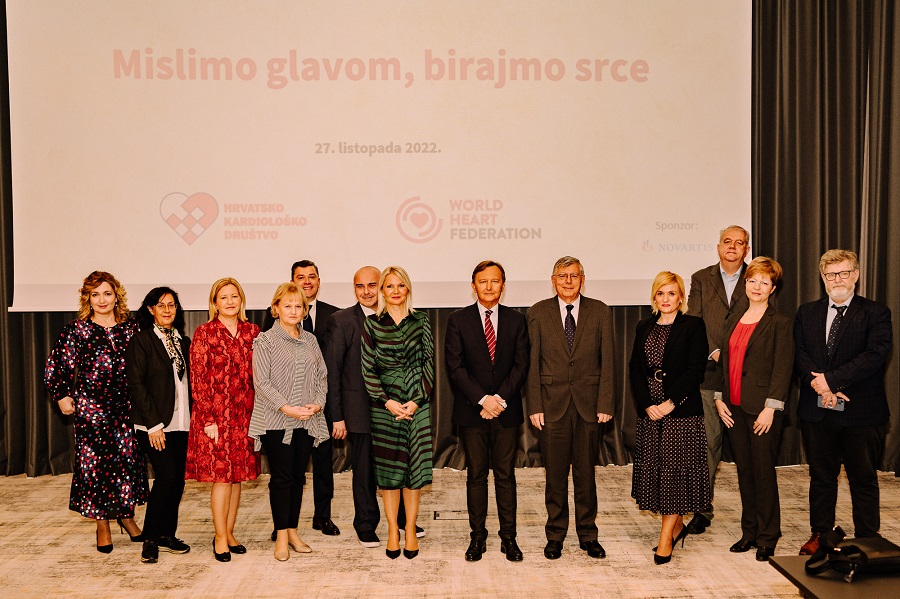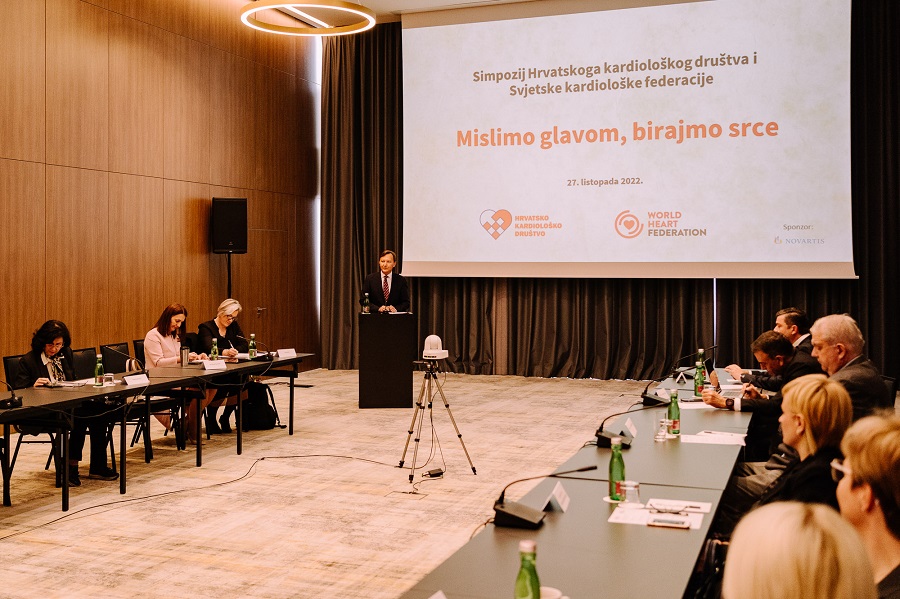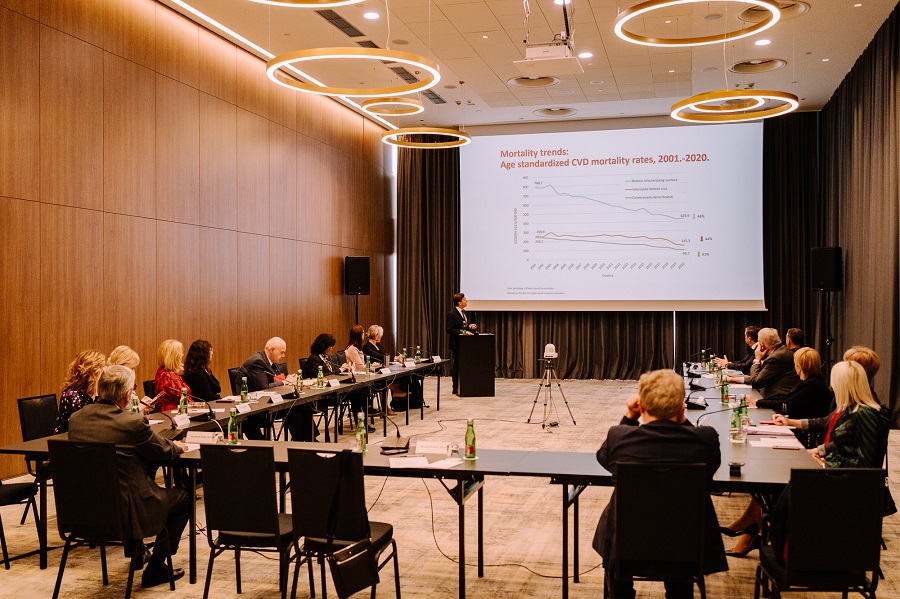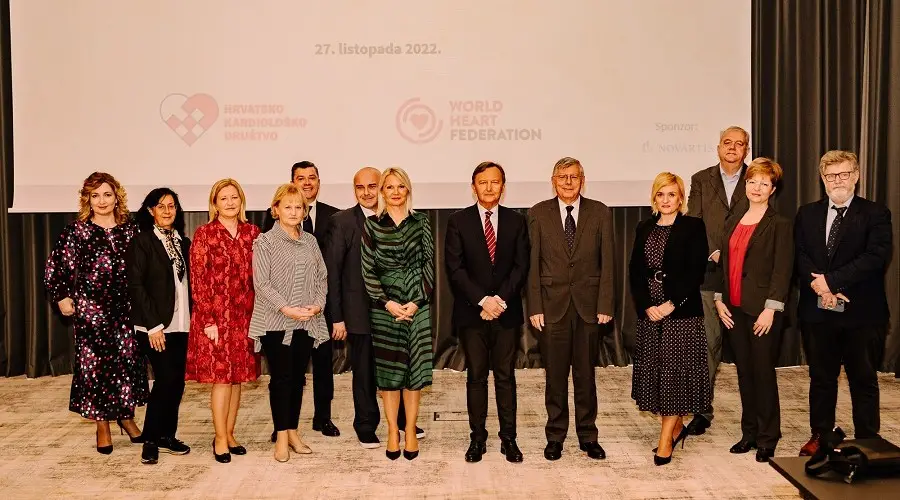Although Croatians have the highest obesity rate amongst the citizens of the EU and insufficiently recognize and treat other key cardiovascular risk factors, Croatia went from the group of so-called very high-risk countries to the group of countries with a high risk of cardiovascular diseases. This is confirmation of the good practice of domestic experts in cardiovascular health, but the key next step is the National Plan for the Suppression of Cardiovascular Diseases with the aim of transforming into a group of countries with low cardiovascular risk – the most developed countries in Europe and the world.

The symposium named Use your brain chose your heart, organized by the World Heart Federation and the Croatian Cardiac Society in Zagreb and under the chairmanship of academician Davor Miličić, brought together the leading domestic experts in cardiovascular health. Just after the world premiere, got acquainted with the new Roadmap for Cholesterol 2022. It is a comprehensive document aimed at improving health outcomes and survival in patients with increased cardiovascular risk, with an emphasis on the importance of comprehensive prevention, early and high-quality diagnostics, and screening of risk groups from an early age. It was presented by the president of the European Society for Atherosclerosis and one of the world’s leading authorities on cardiovascular diseases, prof. Kausik Ray. As the host of the symposium, academician Davor Miličić asserted that with more than 22,000 deaths from cardiovascular diseases per year, Croatia is among the countries with higher mortality rates than the EU average and is classified as one of the countries with a high cardiovascular risk in Europe. In Croatia, there is already a consensus on the need for the urgent adoption of the National Plan for the Suppression of Cardiovascular Diseases, which has the support of the Ministry of Health. Academician Miličić also pointed out that cardiology is a very successful field of Croatian medicine, within which a number of new diagnostic and therapeutic achievements have been introduced into routine practice, such as the primary network of interventional treatment in acute coronary syndrome and other most complex interventional procedures in diseases of the heart, aorta and peripheral vessels. Great progress was also made in arithmology and electrostimulation, and of course, in heart transplantation and the use of mechanical circulation pumps, which is why Croatian cardiology is internationally recognized and acknowledged. Therefore, our cardiology patients, even the most difficult ones, can receive high-quality and comprehensive cardiology care in Croatia.

“In order to bring Croatia closer to countries with the lower mortality rates from cardiovascular diseases, it is necessary to simultaneously work on six key challenges – comprehensive primary prevention targeted active and systematic detection of high-risk patients who do not yet have an established diagnosis, such as those with familial hyperlipoproteinemia, reduction of obesity and cardiometabolic risk, public health campaigns, the introduction of new therapies in accordance with the guidelines of the European Society of Cardiology and, of course, the consistent and steady implementation of a comprehensive National Plan for the suppression of cardiovascular diseases” concluded academician Miličić.
Academician Miličić also pointed out screening for familial hyperlipoproteinemia among preschool children as one of the future major public health projects, whereby Croatia would be one of the first countries with this type of screening that exposes children with an extremely high cardiovascular risk, but also their parents and siblings. This enables the start of effective treatment and prevents cardiovascular disease and mortality, which without treatment can be expected in adolescence or young adulthood. Academician Željko Reiner reminded it is a congenital disease where patients have a lifelong high value of LDL cholesterol, which needs to be effectively and permanently controlled.

“It is estimated that about 20,000 people in Croatia suffer from such a hereditary form of high cholesterol, of which only one percent has been recognized. Due to long-term imperceptible exposure to high values of bad LDL-cholesterol, these people have a 20 times higher risk of developing cardiovascular diseases than the rest of the population. In this procedure, after identifying a child with familial hypercholesterolemia, the cooperation of a family medicine doctor, but also of the whole family, which would be covered by screening and the possibility of effective, timely treatment, is needed,” added academician Reiner, president of the Croatian Society for Atherosclerosis.
The Ministry of Health strongly supports the proposals and conclusions of the Symposium, pointed out the representative of the Ministry, Dr. Ivana Portolan Pajić. “The upcoming healthcare reform is making a big turn towards primary prevention, early disease detection, and the implementation of screening for familial hypercholesterolemia in preschool children, which will begin in 2023,” she concluded.

Academician Bojan Jelaković, president of the Croatian Society for Hypertension, reminded me of the importance of reduced salt intake. “In the last 12 years, we have recorded a significant decrease in salt intake, both among citizens and through cooperation with the food industry, as well as a decrease in blood pressure values. But we still have to work systematically to highlight the danger that excessive salt consumption poses to human health,” added academician Jelaković. With this Symposium, Croatia hosted the World Heart Federation for the first time, which is the representative of the global cardiovascular community, and gathers more than 200 member organizations in more than hundreds of countries.










